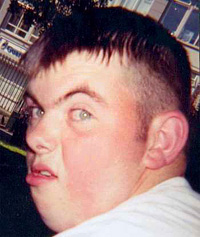Researcher find gene, responsible for autism
They say the findings, published in the Neuron, could point the way to better understanding of the causes of autism, BBC News reports. One UK expert said the findings were interesting, but needed much more work before they could be applied to humans.

By deleting a gene called PTEN in certain parts of the brain, scientists created mice that exhibited behaviors similar to those of people with autism.
Researchers at the University of Texas Southwestern Medical Center at
The gene was deleted from the front of the brain and from areas of the hippocampus, a structure involved in memory and other functions. The mice displayed autistic-like traits such as an oversensitivity to stimuli and deficits in social interaction. Along with altered behavior, the mice also had physical abnormalities in their brains, according to Forbes.
Compared to normal mice, the brains of the altered mice were noticeably altered in the areas where PTEN was deleted. Nerve cells were thicker than normal and had a higher-than-normal number of connections to other nerve cells, which may explain problems with sensory overload.
The next phase of this research is to treat the altered mice with drugs in order to determine whether it's possible to reverse the condition
Subscribe to Pravda.Ru Telegram channel, Facebook, RSS!




